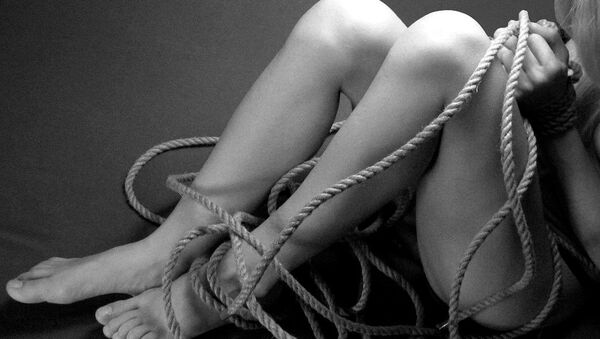The accused were believed to have worked at every level of human trafficking: acquiring, selling, and marketing women and girls. "Normally only the pimps get picked up but this time everyone involved in buying, selling and reselling of these girls has been found guilty," said Special Public Prosecutor Rathod Ramsingh to Thomson Reuters.
"The entire judicial proceeding took over three years of meticulous planning and preparation. At every stage of the trial, which was finally done against 50 accused, all the victims testified bringing out the most important and fundamental details of the criminal network and their modus operandi."
Police raided a series of brothels in the Ballari district of Karnataka state. Reports detailed that 43 slaves were rescued, 21 one of whom were minors, while 87 accusations were made in relation to the ring, and police arrested 51 of the accused.
In addition to the 39 convictions, 48 suspects will stand trial in Karnataka in the coming months. Those convicted will pay fines of 247,000 rupees ($3,630), in addition to their jail time.
Activists in India have celebrated the decision as a deterrent to future trafficking. "This conviction is because of the courage of the survivors, all young women, who walked into the packed courtroom to identify their traffickers and the men who abused them," said Adrian Phillips, an activist with anti-trafficking non-profit Justice and Care.
"Offenders who previously assumed they would get away with the crime will now know otherwise."
The 2014 Global Slavery Index estimated there to be some 36 million people in the world held in slavery. Statistics indicate that an estimated 16 million, or 44 percent, live in India as sex workers, manual laborers, or victims of debt bondage.
Swati Maliwal, who heads the Delhi Commision for Women, said in a February 2016 statement that sex slaves in India live in inhumane conditions. "They are forced to sleep with up to 30 men daily. Most of the time, they are not given any money as most of it goes to the pimp. It is extremely sad and cannot be justified in independent India. It's just horrible."
Maliwal criticized the Delhi government for doing next to nothing to help women and children. "Delhi doesn't have a rehabilitation policy, there is no restoration policy for victims… I really don't understand how the highest levels of the government could [fail] like that."
Statistics from India's national crime records bureau show that just 2,075 human trafficking cases were prosecuted in India in 2016, about.01 percent of the amount of slaves. Of those cases, only 824 ended in a conviction.




